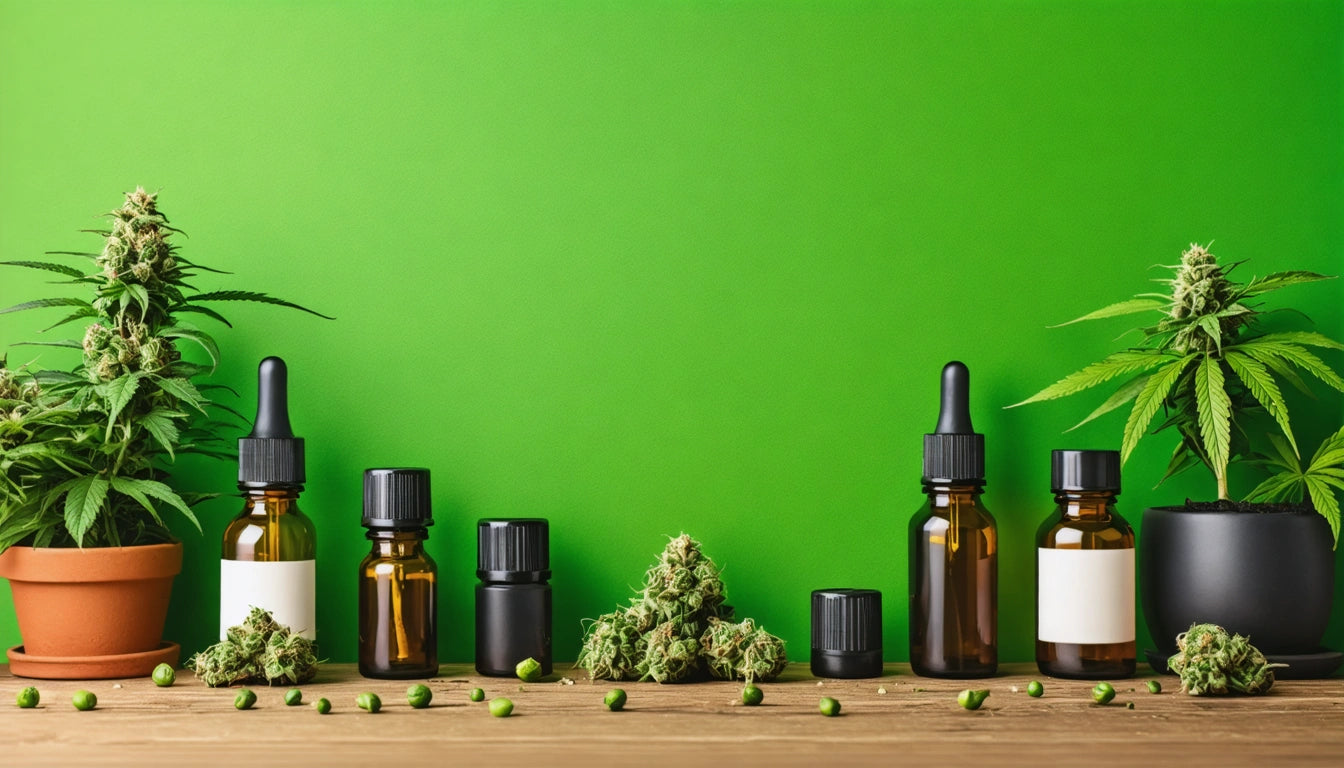Exploring the Effects, Uses, and Legalities of CBD and CBG Products
Cannabidiol (CBD) and cannabigerol (CBG) have emerged as popular wellness supplements, but misconceptions about their effects persist. Many consumers wonder about their psychoactive potential, legal status, and therapeutic applications. This comprehensive guide addresses common questions and clarifies what these cannabinoids actually do in the body.
Understanding CBD & CBG Basics
CBD and CBG are two of over 100 cannabinoids found in cannabis plants. Unlike THC (tetrahydrocannabinol), neither CBD nor CBG produces intoxicating effects. They interact with the body's endocannabinoid system differently than THC, which explains their distinct properties.
CBD works primarily by influencing receptor systems beyond just cannabinoid receptors, including serotonin receptors. CBG, often called the "mother cannabinoid," is a precursor molecule from which other cannabinoids develop during plant growth. Understanding CBD's uses and interactions requires recognizing how it affects multiple bodily systems simultaneously.
Psychoactive Effects Debunked
Does CBD Get You Stoned?
No, CBD does not get you stoned or high. This is perhaps the most common misconception about CBD products. Unlike THC, CBD does not bind directly to CB1 receptors in the brain that create intoxicating effects. CBD cannot get you high regardless of consumption method or dosage.
Does CBG Get You Stoned?
Similarly, CBG does not produce intoxicating effects. Research suggests CBG may actually counteract some of THC's psychoactive properties by working as a partial antagonist at CB1 receptors. Neither compound will produce the euphoria, altered perception, or cognitive impairment associated with being "stoned."
Therapeutic Applications
While research continues to evolve, preliminary studies and anecdotal evidence suggest several potential benefits of CBD and CBG:
What Can CBD Help With?
- Anxiety and stress reduction
- Pain management and inflammation
- Sleep improvement
- Seizure reduction (FDA-approved for certain forms of epilepsy)
- Potential support for neurological conditions
CBD may help with anxiety, depression and overall well-being through its interaction with serotonin receptors. For precise measurements when working with CBD products, many professionals rely on accurate digital scales for consistent dosing and product formulation.
Can CBD Help Motor Tics?
Emerging research suggests CBD may help reduce the frequency and severity of motor tics in some individuals with conditions like Tourette syndrome. This appears to be related to CBD's anti-inflammatory and neuroprotective properties, though more clinical studies are needed.
Can CBD Help Asthma?
Some preliminary research indicates CBD's anti-inflammatory properties might benefit asthma patients by reducing airway inflammation. However, smoking CBD is not recommended for asthma sufferers, as combustion can irritate respiratory passages. Oils or edibles would be more appropriate delivery methods if pursuing this application.
Consumption Methods & Effectiveness
What Does Smoking CBD Do?
Smoking CBD flower provides rapid onset of effects through pulmonary absorption. Users typically report feeling relaxed and experiencing reduced anxiety or pain within minutes. However, the sensory experience of CBD varies significantly between individuals.
Does Smoking CBD Do Anything?
Yes, smoking CBD can produce noticeable effects. While not intoxicating, many users report feeling calmer, experiencing pain relief, or noticing reduced inflammation. The bioavailability of CBD is higher when smoked compared to oral consumption, meaning more of the compound reaches the bloodstream.
Are CBD Cigarettes Addictive?
CBD itself is not considered addictive and does not create physical dependence. However, the act of smoking can create habitual behaviors. CBD cigarettes typically contain hemp flower with negligible THC content, and research suggests CBD may actually help address addiction to other substances.
Do CBD Candles Work?
CBD candles release cannabinoids when heated, but their therapeutic effect is likely minimal. Aromatherapy benefits from essential oils in these candles may provide relaxation, but the amount of CBD that can be absorbed through inhalation from a candle is very small compared to direct consumption methods.
Legal Status & Considerations
Are CBD Cigarettes Legal?
Hemp-derived CBD cigarettes containing less than 0.3% THC are federally legal in the United States following the 2018 Farm Bill. However, state and local regulations vary significantly. When traveling with CBD products, it's essential to research destination-specific laws.
Does CBD Absorb Through Skin?
Yes, CBD can be absorbed transdermally through the skin, though at a slower rate than other methods. This makes topical applications ideal for targeted relief of localized issues like joint pain or skin conditions.
Can CBD Lotion Get Into Your Bloodstream?
Most CBD lotions are formulated to work locally and don't penetrate deeply enough to reach significant bloodstream levels. However, transdermal patches and specialized formulations designed for deeper penetration can deliver CBD into the bloodstream.
Future Developments & Research Directions
As research expands, scientists are investigating several important questions about CBD and CBG:
Can You Build a Tolerance to CBD?
Current evidence suggests CBD does not produce significant tolerance effects like THC. Many users maintain the same dosage for extended periods without diminishing effects. Some research even indicates CBD might produce reverse tolerance, where smaller doses become effective over time.
The future of cannabinoid research looks promising, with clinical trials examining specific applications for conditions ranging from pain management to neurological disorders. As our understanding grows, so too will the precision with which these compounds can be applied therapeutically.
Whether for wellness support or specific symptom management, CBD and CBG products offer potential benefits without the intoxication associated with traditional cannabis. When approaching these products, starting with low doses and consulting healthcare providers, especially when taking other medications, remains the prudent approach.











Leave a comment
All comments are moderated before being published.
This site is protected by hCaptcha and the hCaptcha Privacy Policy and Terms of Service apply.